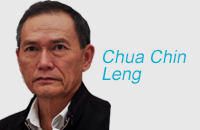Honey, my savings got Lynched by a stock
By Huang Xiangyang (China Daily) Updated: 2015-11-24 08:55More importantly, it managed to make a profit every year since the 2008 global financial crisis. With a low price-earnings ratio of around 10 in 2014, its share price in Hong Kong, where it is listed, was only a third of the 2011 high. It seemed a bargain too attractive for any value investor to resist.
So at around HK$7 (90 cents) I bought 10,000 of its shares. Never before had I felt so assured with my investment, because this time I was investing like Peter Lynch - at least I thought so.
Soon after I bought the shares, the price started to fall, but I was unfazed. "Ignore short-term fluctuations" - I remembered Lynch's advice, and continued to visit the supermarket, as both a shopper and a stockholder.
But Wumart's share price was still on a downward spiral, despite the company's seemingly sound fundamentals and the perpetual crowd of consumers in the supermarket.
Instead of cutting my loss, I bought more shares in Wumart, this time at a lower price, of course, to bring the average price down. When trading in the shares was halted on Oct 5, half the value of my investment in Wumart had already evaporated.
Two weeks later, the company announced it will delist its shares from the Hong Kong bourse. It said it believes a privatization plan will "give the company the flexibility to make timely investment decisions" amid fierce competition.
Though the reported offered price of HK$6.2 for shareholders meant that I could recoup much of my paper loss, I was not overjoyed. The fact that I actually flunked in applying Lynch's theories made me feel like a loser.
Yes, to invest is human. To do it right is divine.
Contact the writer at huangxiangyang@chinadaily.com.cn

I’ve lived in China for quite a considerable time including my graduate school years, travelled and worked in a few cities and still choose my destination taking into consideration the density of smog or PM2.5 particulate matter in the region.











